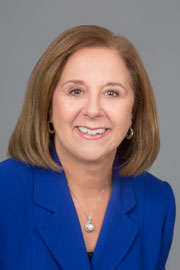NCNA News
Veterans Deserve Quick Access to Quality Care

June 22, 2016
The Veterans Health Administration recently proposed a rule to grant “full practice authority” to all Advanced Practice Registered Nurses (APRNs) working in Veterans Affairs (VA) facilities. Of course, that includes the four VA Medical Centers and nearly two dozen VA outpatient clinics around the North Carolina.
We applaud this proposal because our veterans deserve better access to safe, quality care, something APRNs excel at providing. If there is any group that should already be comfortable with this kind of update, it would be veterans. After all, the Army, Navy, Air Force, Combat Support Hospitals, Forward Surgical Teams, and Indian and Public Health Services have utilized APRNs in this way for years, and in some cases more than a decade.
Considering the highly-publicized backlogs and long wait times plaguing the VA, this update is long past due. Over 6,000 APRNs already provide a full range of services to our veterans in the VA, and they are ideally suited to alleviate that backlog by siphoning off some of the most straightforward health issues and treating them quickly. This would have the added bonus of allowing physicians to spend more of their limited time focused on the patients who truly require more complex care.
Medical groups would have you believe that physicians are looking over the shoulders of nurses as they care for individual patients, but in reality, “physician supervision” typically means signing paperwork and discussing broad issues as infrequently as a few times a year.
That is an important distinction, because the medical groups that have opposed this type of modernization say the status quo is somehow making things safer for patients. The problem with that stance, however, is that there is no evidence to support it. Should APRNs encounter something beyond the scope of their practice, they refer patients to another appropriate healthcare provider – just like any good primary care physician does.
The cornerstone of quality healthcare is evidence-based practice, and the evidence clearly supports these updates. Dozens of studies, conducted over several decades, show that APRNs with full practice authority deliver care that is as good – or at times, even better – than when that same overlapping care is provided by physicians. Even the Institute of Medicine recommended that full practice authority be implemented across the country in a landmark 2010 report.
We applaud the VA for attempting to enact forward-thinking changes that could have a tangible benefit for patients who desperately need help.
If you believe that veterans deserve quick access to quality care, please consider leaving a comment on the VA’s proposed changes by visiting http://bit.ly/APRNsForVeterans.
Mary Graff, MSN, RN, NEA-BC
President, North Carolina Nurses Association